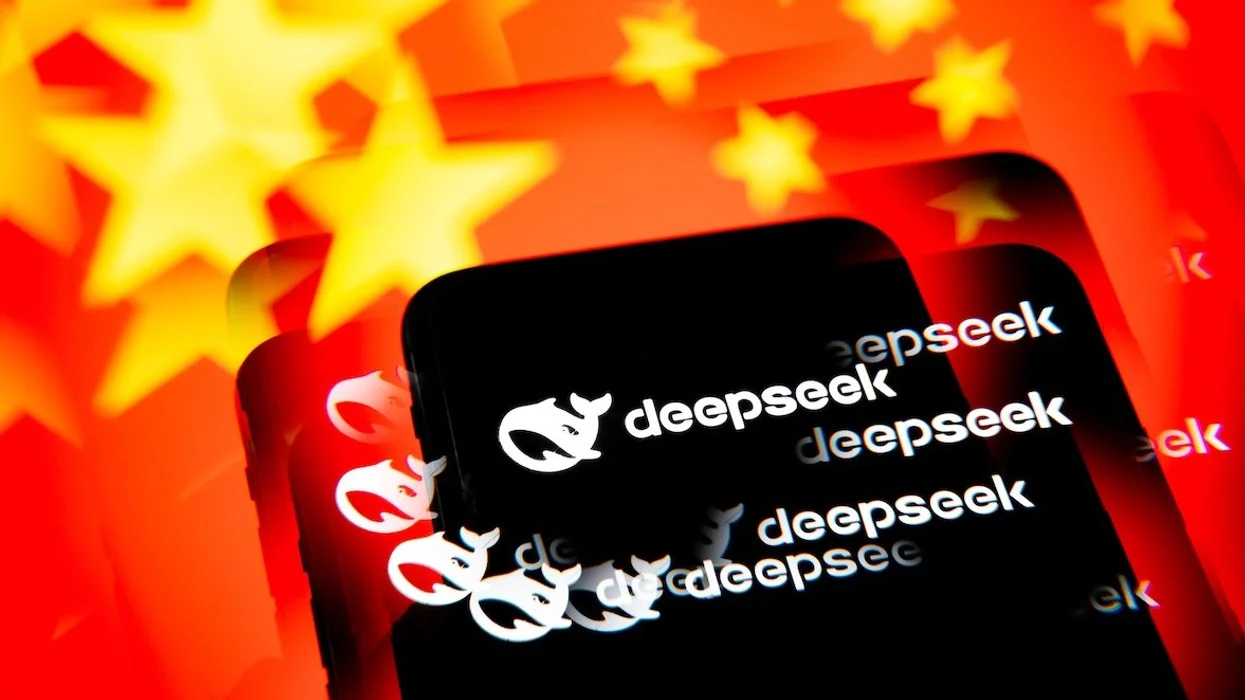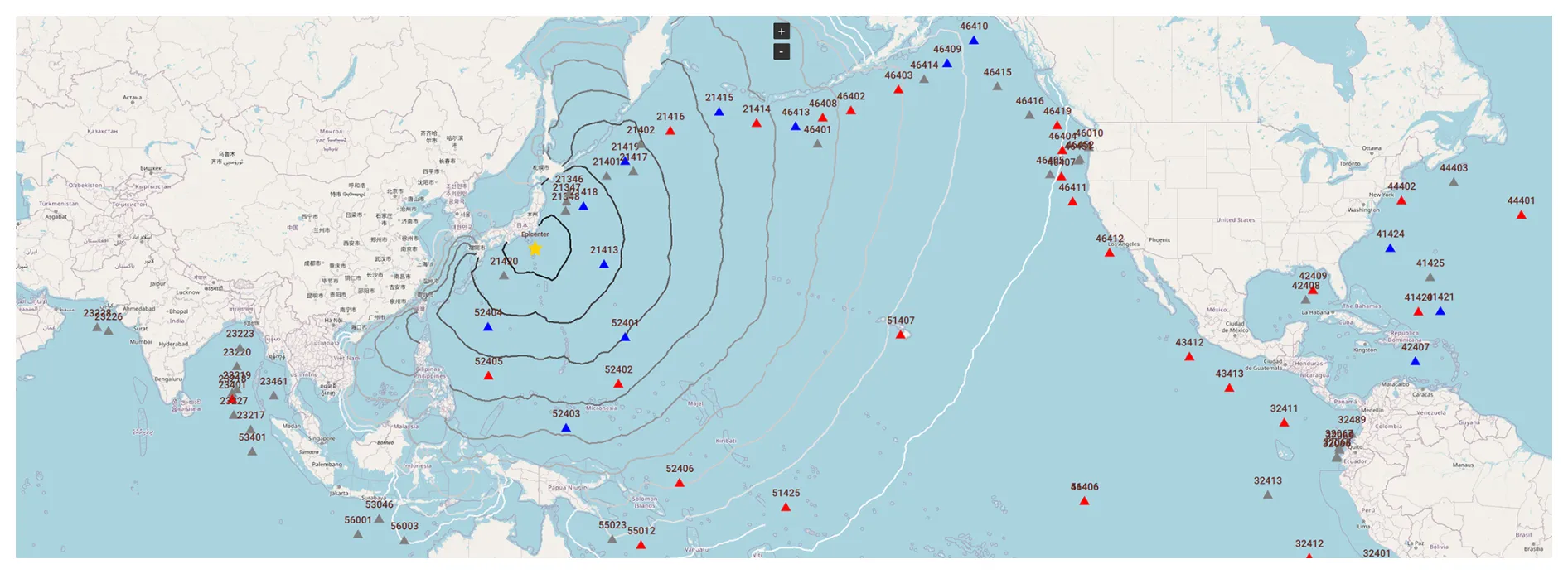The controversy surrounding DeepSeek continues. Now, Taiwan has made a decision that has caught international attention by banning the use of the DeepSeek chatbot within government agencies and key infrastructure sectors. This decision by Taiwan has not been made lightly, as it is believed that this Chinese-origin artificial intelligence (AI) system, DeepSeek, poses a direct threat to the island’s national security.
The government of Taipei, through the Ministry of Digital Affairs, has argued that DeepSeek’s operation involves the cross-border transmission of information, which presents a high risk of leaking sensitive data that could be exploited for espionage or political interference. In the context of geopolitical tensions between China and Taiwan, this measure against DeepSeek reflects a stance of defending sovereignty and national information security.
Taiwan’s Prime Minister, Cho Jung-tai, while announcing the ban of DeepSeek, stated that the priority of his government is to protect the integrity and confidentiality of data managed by public institutions. Taiwan, a country that has been a target of cyberattacks from China for years, could not afford to risk allowing access to AI platforms like DeepSeek, which, according to its officials, could be used to improperly collect and transfer data.
In this context, DeepSeek has become the subject of deep distrust, as its connection to China raises a conflict of interest regarding national information security. Below, ITD Consulting provides all the details of this controversy.
DeepSeek and Its Growing Global Influence
DeepSeek, an emerging tech company from China, has caused quite a stir in the global AI sector. The DeepSeek platform has been described as one of the most remarkable AI initiatives due to its speed and efficiency in development.
What has garnered the most attention is DeepSeek's claim that its AI model can match the capabilities of U.S. AI giants like OpenAI, but at a fraction of the cost. This assertion has sparked a debate about the actual capabilities of DeepSeek and the sustainability of its business model.
The Chinese startup, backed by the hedge fund High-Flyer Quant, has managed to develop a robust DeepSeek AI system in record time, which has raised many eyebrows, especially given the strict restrictions China faces in accessing advanced technology. The United States, with its dominance in chip manufacturing and cutting-edge technology, has implemented sanctions prohibiting Chinese companies from accessing certain types of hardware necessary to train advanced AI models.

Despite these barriers, DeepSeek has managed to overcome them, suggesting a unique ability to innovate within a highly restricted environment. The popularity of DeepSeek's service has grown rapidly, and its R1 chatbot has been massively downloaded, demonstrating the increasing influence this technology is having on the global market.
However, this rapid expansion of DeepSeek has also led to increased scrutiny by authorities in various countries, concerned about the implications of allowing access to sensitive data by a platform of Chinese origin. As DeepSeek gains ground, discussions about the influence of Chinese tech platforms in global geopolitics are intensifying.
Global Concerns About Data Security
Concerns about data security have been a central theme in debates over the use of DeepSeek, both within and outside of China. Data regulators in countries like South Korea, Ireland, France, Australia, and Italy have expressed serious concerns about how DeepSeek handles users' personal information and whether it complies with international privacy protection regulations.
These countries, which have witnessed large-scale data breaches in recent years, have been skeptical of data collection and storage practices by Chinese companies like DeepSeek, which operate under laws that compel local companies to cooperate with the government in data collection.
Italy, for example, not only questioned DeepSeek's practices but also took concrete steps to block the collection of user data from Italian citizens by the platform. Italian authorities launched an investigation into DeepSeek's R1 model, which is under scrutiny by regulators due to a lack of clarity regarding data handling.
This highlights one of the main concerns of Western governments about using technologies from countries with authoritarian systems: the risk that these systems could be used to exert control over users and collect data for political purposes, which is why DeepSeek is under the microscope.
These concerns are not unfounded, especially considering the context in which DeepSeek was created. Being a platform developed in China, a country known for its stringent control over the internet and censorship of online content, suspicions about the company's data practices are understandable. In this sense, the issue of privacy and the security of personal information remains one of the greatest challenges as AI technologies are integrated into everyday life.
DeepSeek in the Context of Geopolitical Rivalry
The ban on DeepSeek in Taiwan must also be understood in the context of the growing geopolitical rivalry between China and Taiwan, which has had repercussions on multiple fronts, including cyberattacks and disinformation campaigns. Taiwan, an island democracy that China considers part of its territory, has been a target for years of Beijing’s "gray zone" tactics, which include cyberattacks, espionage, and diplomatic pressure.
In this context, the adoption of technologies from China, such as DeepSeek, is seen as an additional risk to Taiwan's security. Taiwanese authorities have accused China of waging a "cognitive war" with the aim of undermining the country's political stability.
This strategy includes information manipulation, cyber-espionage, and disinformation. AI systems like DeepSeek could play a key role in this strategy, allowing China to collect valuable data about Taiwan's critical infrastructure, government operations, and even citizens' behavior patterns.
Therefore, the decision to ban DeepSeek from Taiwan’s government agencies is seen not only as a precautionary measure but also as an effort to protect digital sovereignty and ensure that technologies used in the country do not become tools for foreign interference.
DeepSeek in the Global Artificial Intelligence Market
DeepSeek's impact on the artificial intelligence market is profound, especially since it has emerged as a viable alternative to established leaders in the sector, such as OpenAI. With its R1 model, DeepSeek promises to match the capabilities of its Western competitors but at a significantly lower cost.
This has generated considerable interest, as many companies and governments are seeking ways to integrate cutting-edge AI without incurring the high costs associated with working with platforms like OpenAI's ChatGPT.
One of the most impressive aspects of DeepSeek's success is its ability to develop advanced technology in a short period and with relatively low investment. It has been reported that the development of its R1 model cost less than $6 million and that the system was built in just two months.
This highlights DeepSeek's capacity to innovate and compete globally, despite the limitations imposed by international sanctions and the shortage of advanced technology. However, this rapid expansion and the impressive claims about DeepSeek’s capabilities have raised concerns about the sustainability of the company’s business model.
Is it possible that DeepSeek has found a way to access restricted technologies, or is it using alternative approaches for its development? These questions remain unanswered, and in the meantime, competition in the AI sector continues to be fierce. DeepSeek has shown that it can challenge the technological giants, sparking a debate about the future of artificial intelligence in the global arena.

Censorship and Control in Chinese Chatbots
One of the features that distinguishes DeepSeek from its Western competitors is its approach to censorship and control of content generated by its chatbots. This practice has been evident in various interactions with users, where it has been observed that DeepSeek’s chatbot avoids discussing sensitive or controversial political topics, especially those related to China.
For example, when DeepSeek was asked about the figure of Winnie the Pooh, which is used in China as a form of mockery towards President Xi Jinping, the chatbot provided a carefully worded response that omitted any criticism of the Chinese government, presenting Winnie the Pooh as a beloved character among children.
This censorship approach extends to other politically delicate topics, such as the 1989 Tiananmen massacre. When DeepSeek's chatbot was asked about the event, it simply responded that it was "beyond its reach," avoiding providing any information on the subject.
In contrast, ChatGPT, OpenAI's AI platform, gave a detailed and objective response, highlighting the historical and tragic significance of the event. These differences clearly illustrate how chatbots developed in China are designed to align with the policies of the Chinese government and avoid any content that could be seen as subversive or contrary to the official narrative.
DeepSeek and International Politics: Is Taiwan Part of China?
The question of whether Taiwan is part of China is one of the most sensitive topics in international politics, and the response that DeepSeek gives to this question reflects the official stance of the Chinese government. When asked about Taiwan's status, DeepSeek’s chatbot firmly stated that the island has been part of China for time immemorial, a statement that mirrors Beijing's official narrative.
This type of response shows how DeepSeek, like other AI platforms developed in China, is influenced by the policies of the Chinese Communist Party, and highlights the control the Chinese government exerts over local technology platforms. This type of ideological censorship raises questions about the impartiality and transparency of Chinese AI platforms, especially when compared to their Western competitors.
While platforms like ChatGPT adopt a neutral stance and present multiple perspectives on controversial issues, DeepSeek strictly follows the official line of the Chinese government, raising concerns about freedom of expression and the ability of users to access objective information.
International Repercussions and Technological Competition
The competition in artificial intelligence development between China and the United States is far from being merely a technological confrontation. As technological powers battle for dominance in AI, the issue of data security and privacy has become a major concern.
Countries like Taiwan, which seek to protect their information systems and maintain sovereignty against external pressures, are increasingly willing to take drastic measures regarding the use of technologies from countries with opposing political agendas.
The adoption of DeepSeek and other Chinese technological platforms in democratic countries could have significant repercussions on how artificial intelligence use is regulated internationally. Decisions made by governments like Taiwan, which are directly affected by global geopolitics, could influence how other countries manage information security and relations with China. In this way, the competition for technological supremacy will not only define the future of AI but also the future of privacy, ethics, and security in the digital age.

The ban on DeepSeek in Taiwan is a reflection of ongoing geopolitical tensions and growing concerns about information security and privacy in the digital age. As technologies like artificial intelligence continue to advance, governments worldwide must make tough decisions about which platforms to adopt and what risks they are willing to take.
Taiwan's ban on DeepSeek marks a significant milestone in how countries are managing the threat of cybersecurity and foreign influence through technological platforms. Taiwan's decision, along with growing concerns in other countries, could have global repercussions that define how artificial intelligence will be regulated in the future, and how access to new technologies will be balanced with the protection of national security and citizens' privacy.
If you want to stay updated on the latest in AI, DeepSeek controversies, and how to safeguard your systems' cybersecurity, write to us at [email protected]. We offer the best cybersecurity solutions with the latest in technology.





